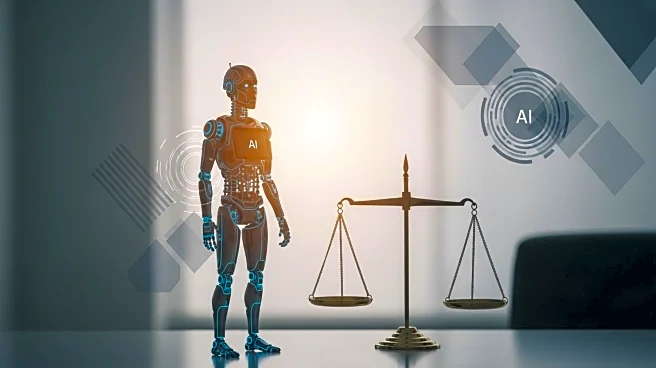What's Happening?
Recent discussions in the HR industry have highlighted the need for clear and comprehensive AI ethics policies in workplaces. Ines Bahr, a senior analyst specializing in HR trends, noted the confusion among employees regarding the use of AI tools due to unclear usage policies. This confusion can lead to unethical or illegal actions, such as data privacy violations and identity-based discrimination. Kevin Frechette, CEO of AI software company Fairmarkit, emphasized that AI ethics policies should focus on how AI can enhance work and maintain trust. He advised that policies should prioritize the impact on employees rather than the technology itself. Additionally, industry-specific issues, such as software vulnerabilities, should be addressed in these policies to prevent security risks.
Why It's Important?
The implementation of AI ethics policies is crucial as AI technology becomes increasingly integrated into workplace operations. These policies can help mitigate risks associated with AI use, such as data breaches and discrimination claims, thereby protecting both employees and organizations. By focusing on the human impact of AI, companies can foster a culture of trust and empowerment, ensuring that AI serves as a tool to assist rather than replace workers. This approach can enhance employee satisfaction and productivity, while also safeguarding against potential legal and ethical issues.
What's Next?
As AI technology continues to evolve, companies must remain flexible and regularly update their AI ethics policies. Frechette suggests treating these policies as living documents that adapt to technological advancements, regulatory changes, and workforce needs. Continuous testing and revision of policies will ensure their relevance and effectiveness over time. Companies may also need to provide ongoing training to employees to promote secure and compliant use of AI tools.








